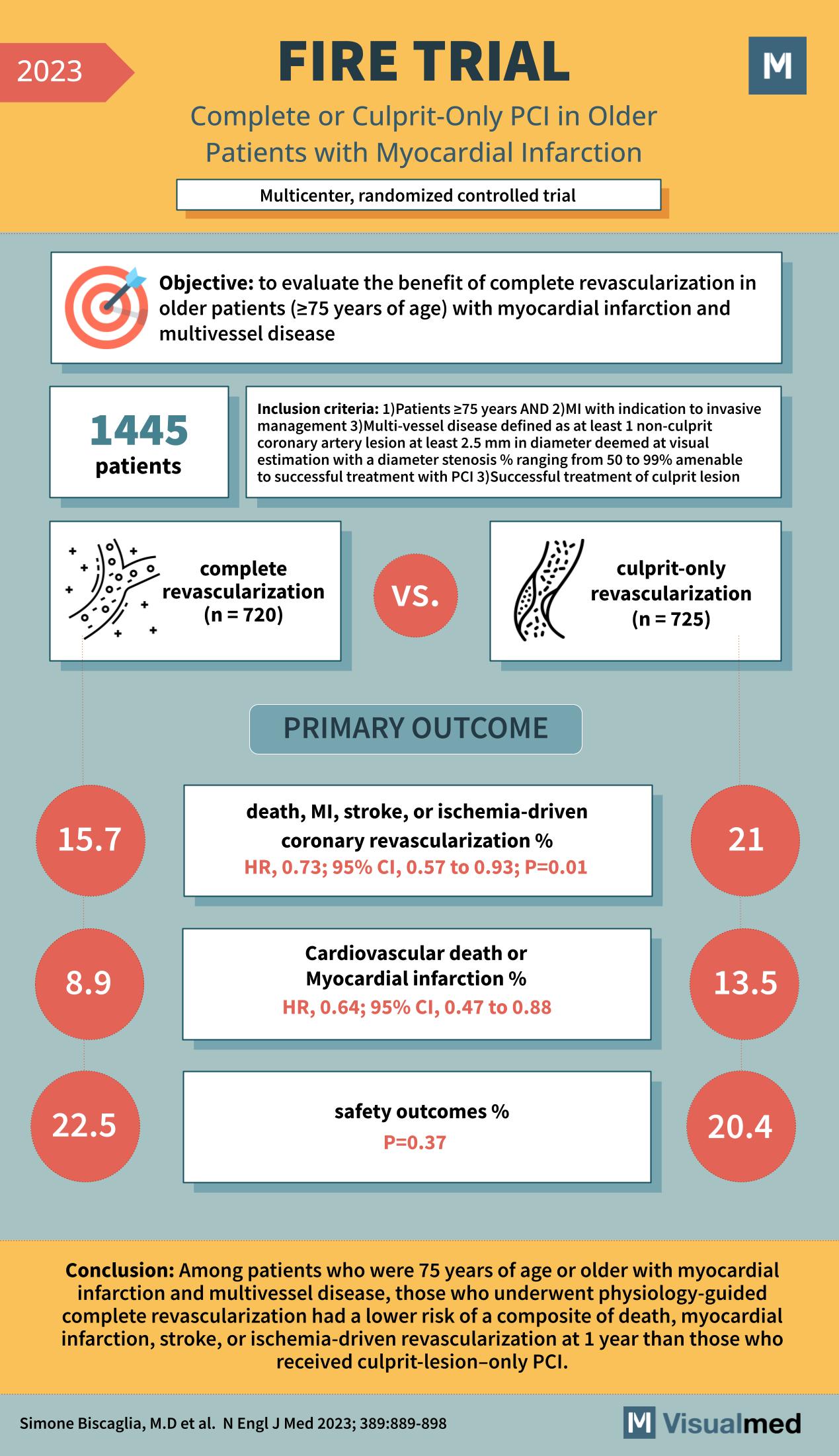
The FIRE trial, published in the New England Journal of Medicine in 2023, was a multicenter, randomized controlled trial that aimed to evaluate the benefits of complete revascularization versus culprit-lesion-only percutaneous coronary intervention (PCI) in older patients (≥75 years of age) with myocardial infarction and multivessel disease.
Inclusion criteria included patients of at least 75 years of age with myocardial infarction, indication for invasive management, multivessel disease, and a successful treatment of the culprit lesion. Participants were randomly assigned to undergo either complete revascularization (n=720) or culprit-only revascularization (n=725).
The primary outcome was the composite of death, myocardial infarction (MI), stroke, or ischemia-driven coronary revascularization. The results showed a lower risk of these outcomes in the complete revascularization group (15.7%) compared to the culprit-only group (21%), with a hazard ratio (HR) of 0.73, indicating a significant benefit (95% CI, 0.57 to 0.93; P=0.01).
Secondary outcomes included rates of cardiovascular death or myocardial infarction and safety outcomes. The complete revascularization group had lower rates of cardiovascular death or MI (8.9% vs. 13.5%) and similar safety outcomes (22.5% vs. 20.4%) compared to the culprit-only group, with no significant difference in safety outcomes (P=0.37).
The conclusion of the FIRE trial was that among older patients with myocardial infarction and multivessel disease, those who underwent physiology-guided complete revascularization had a lower risk of the composite outcome at 1 year compared to those who received culprit-lesion-only PCI.
The implications of the FIRE trial are significant for the management of patients with myocardial infarction and multivessel disease. The study supports the strategy of complete revascularization, suggesting a potential benefit in reducing the risk of adverse cardiovascular events. The trial provides valuable evidence for clinicians in deciding the best approach for managing this patient population, emphasizing the importance of personalized treatment strategies.